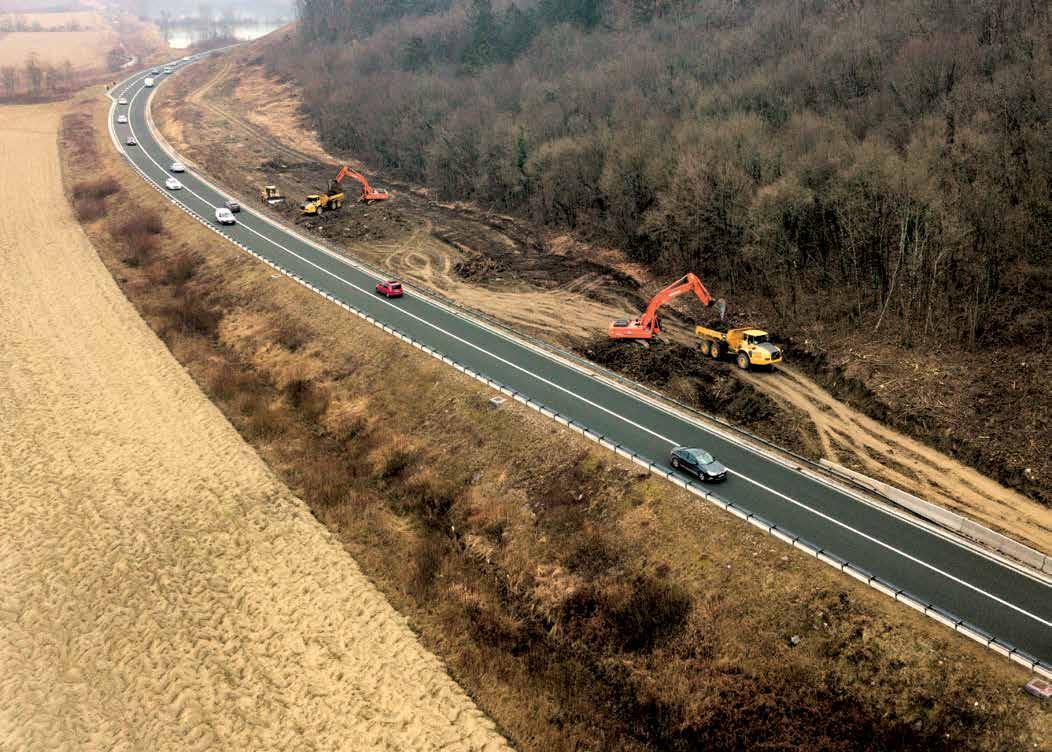
1 minute read
CONSTRUCTION OF THE ISTRIAN MOTORWAY
We have built 100 km of modern motorway
2,200 blastings
Advertisement
Special anti-corrosion protection of the Mirna Viaduct
Archaeological sites along the Istrian Motorway
3 million cubic meters of material moved
In cooperation with the Ethnographic Museum of Istria, about 200 “kažuns” (dry-stone huts) found along the Motorway route were relocated For a better water protection:
55 filtering chambers
11 drainage lagoons for separation of impurities
150,000 m2 of special wire mesh to protect rock slopes along the Motorway
During the construction of the Istrian Motorway, a total of 7 archaeological sites dating from the Middle Palaeolithic to Late Antiquity were explored. The most notable site is Stancija Peličeti, which is located in Pula Interchange and dates back to the period of antiquity. It is a residential and business complex where glass, bronze and iron objects, amphorae, bones and tegulae imprinted with workshop stamps were found.
Today, we link Pazin and Rijeka
Works in line with the Environmental Impact Study for a better protection of people, animals and soil
Diversion of the existing utility, water, electricity and telecommunication networks along the Motorway
Modern technology LED lighting to protect from light pollution
Special technology applied in building embankments on the motorway main alignment

High visibility traffic signage
Advanced asphalt which prevents tire spray and hydroplaning during rain
Newly-built 9,300 m2 noise attenuation walls to ensure peace to the residents
Modern technology used in soil stabilisation
90.000 meters of new-generation safety barrier Construction of 31 new bridges and viaducts over 36 months







